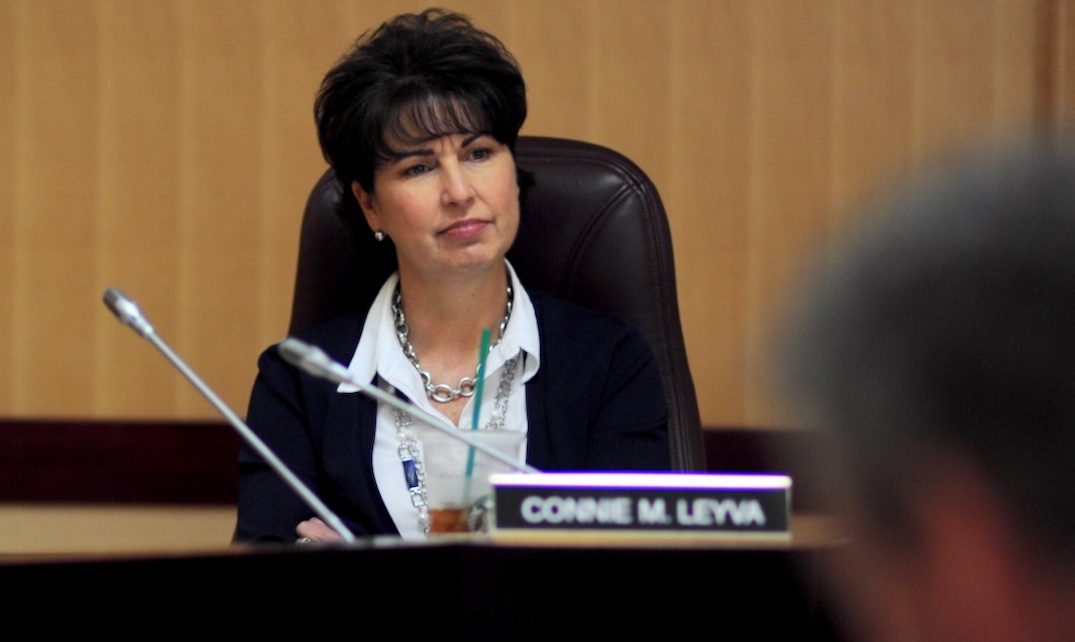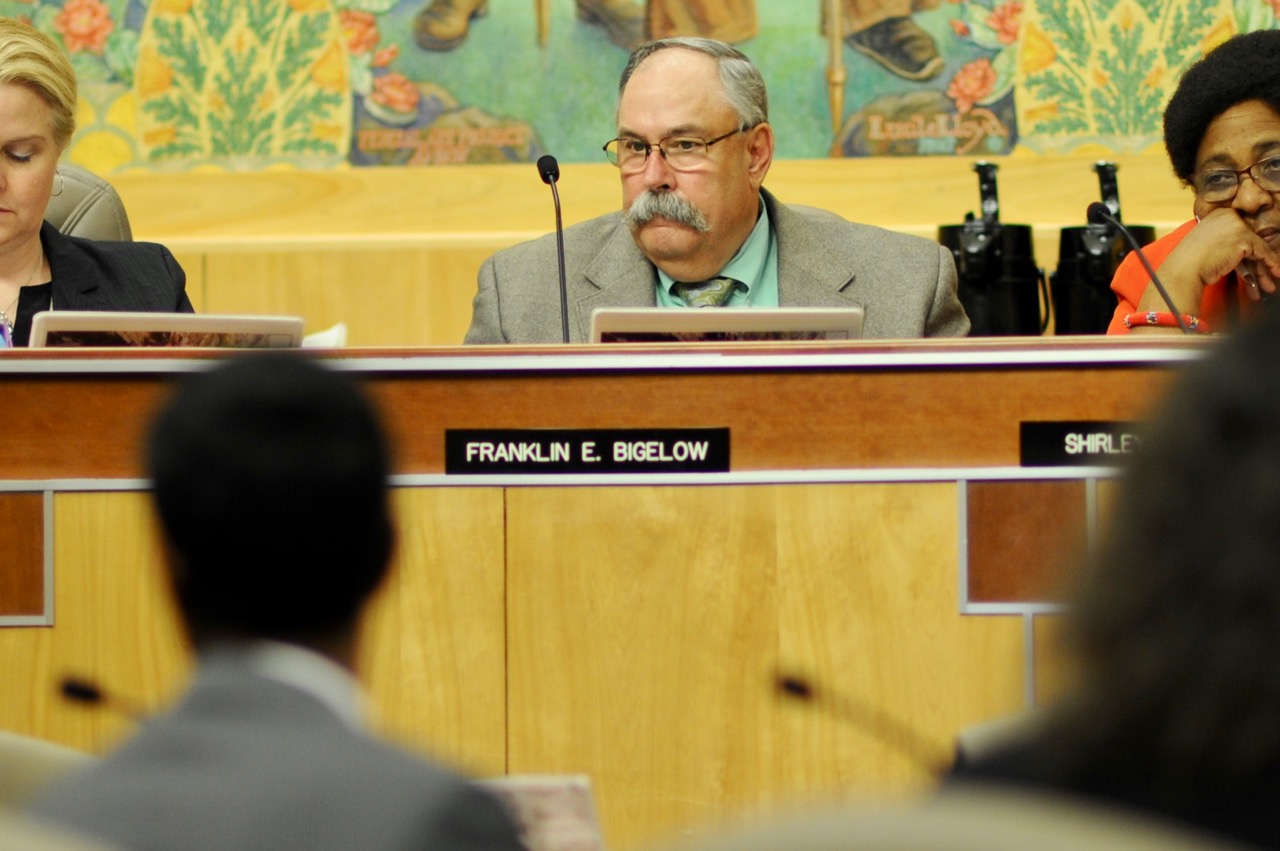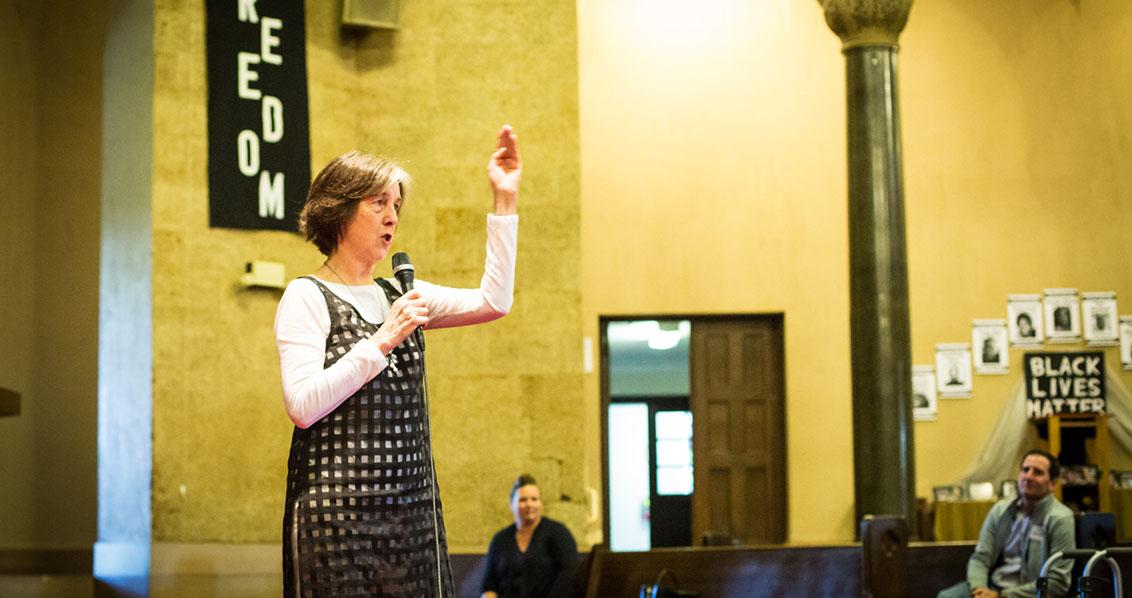
Sen. Connie M. Leyva. (Photo: Kevin Sanders for California Globe)
SB 727: Direct Contractors’ Liability Expanded to Include Damages and Penalties
‘Does not apply to work performed by employees of the state or any political subdivision of the state’
By Chris Micheli, September 27, 2021 5:04 pm
On September 27, 2021, Governor Gavin Newsom signed into law Senate Bill 727 by Sen. Connie Leyva (D-Chino), relating to the liability of direct contractors in this state for the erection, construction, alteration, or repair of a building, structure, or other private work.
Section One of the bill amends Section 218.7 of the Labor Code to specify that its provisions apply for contracts entered into between January 1, 2018 and December 31, 2021.
Section Two of the bill adds Section 218.8 to the Labor Code. First, the bill provides that, for contracts entered into on or after January 1, 2022, the direct contractor is liable for any debt owed to a wage claimant or third party on the wage claimant’s behalf that is incurred by a subcontractor at any tier acting under, by, or for the direct contractor. In such a case, the direct contractor is liable for the wage claimant’s performance of labor included in the subject of the contract between the direct contractor and the owner.
Specifically, the direct contractor is liable for any unpaid wage, fringe or other benefit payment or contribution, penalties or liquidated damages, and interest owed by the subcontractor on account of the performance of the labor. In addition, the direct contractor’s liability extends to penalties and liquidates damages only in the following manner:
- If a worker employed by a subcontractor on a private construction project is not paid the wage, fringe or other benefit payment or contribution owed by the subcontractor on account of the worker’s performance of labor on that project, the direct contractor of the project is not liable for any associated penalties or liquidated damages unless the direct contractor had knowledge of the subcontractor’s failure to pay the specified wage, fringe or other benefit payment or contribution, or the direct contractor fails to comply with all of the following requirements:
- The contractor must monitor the payment by the subcontractor of wage, fringe or other benefit payment or contribution to the employees or the labor trust fund, by periodic review of the subcontractor’s payroll records.
- Upon becoming aware of the failure of the subcontractor to pay the wage, fringe or other benefit payment or contribution to the employees or the labor trust fund, the contractor must diligently take corrective action to halt or rectify the failure, including, but not limited to, retaining sufficient funds due the subcontractor for work performed on the private construction project.
- Prior to making final payment to the subcontractor for work performed on the private construction project, the contractor must obtain an affidavit signed under penalty of perjury from the subcontractor that the subcontractor has paid the wage, fringe or other benefit payment or contribution due to the employees or the labor trust fund for all work performed on the private construction project.
Division of Labor Standards Enforcement (DLSE) is required to notify the contractor and subcontractor on a private works project within 15 days of the receipt by the DLSE of a complaint of the failure of a subcontractor on that private works project to pay the specified wage, fringe, or other benefit due to workers. In addition, a direct contractor or any other person is prohibited from evading or committing any act that negates any provision on this statute.
This law does not prohibit a direct contractor or subcontractor at any tier from establishing by contract or enforcing any otherwise lawful remedies against a subcontractor it hires for liability created by the nonpayment of wages, fringe or other benefit payments, or contributions by that subcontractor or by a subcontractor at any tier working under that subcontractor, including liability for associated penalties and liquidated damages.
The Labor Commissioner may enforce against a direct contractor the liability for unpaid wages, liquidated damages, interest, and penalties through an administrative action or a civil action. The Labor Commissioner is required to notify the direct contractor and subcontractor at any tier on a private works project at least 30 days prior to a hearing held on an administrative complaint, prior to issuance of a citation, or prior to filing a civil action, for the failure of a subcontractor on that private works project to pay the specified wage, fringe, or other benefit due to workers.
In addition, a third party owed fringe or other benefit payments or contributions on a wage claimant’s behalf may bring a civil action against a direct contractor to enforce the liability for any unpaid wage, fringe or other benefit payment or contribution, penalties or liquidated damages, and interest owed by the subcontractor on account of the performance of the labor. A court is required to award a prevailing plaintiff in such an action its reasonable attorney’s fees and costs, including expert witness fees. A joint labor-management cooperation committee may also bring a civil action against a direct contractor or subcontractor, with 30 days’ written notice. However, no other party may bring an action against a direct contractor to enforce liability.
Any liquidated damages awarded by the Labor Commissioner or the court are to be payable to the aggrieved employee and property of the direct contractor may be attached, after trial, for the payment of any judgment received. An action brought under this law must be filed within one year of the earliest of recordation of the completion notice, the notice of cessation, or actual completion of the work.
Note that this section of law does not apply to work performed by an employee of the state, a special district, a city, a county, a city and county, or any political subdivision of the state.
Upon request by a direct contractor to a subcontractor, the subcontractor and any lower tier subcontractors under contract to the subcontractor must provide payroll records, which contain the Labor Code required pay stub information of its employees who are providing labor on a private work, which payroll records shall be marked or obliterated only to prevent disclosure of an individual’s full social security number, but shall provide the last four digits of the social security number. A direct contractor cannot be relieved of liability even if records are not provided.
- Proration of Estate Taxes - February 28, 2026
- Corporations Commissioner Powers - February 27, 2026
- Death Deeds in California - February 27, 2026





New Jersey ranks worst state in nation for business regulation but I have faith governor Gruesome will get California there before he’s over, we’re already second to last.